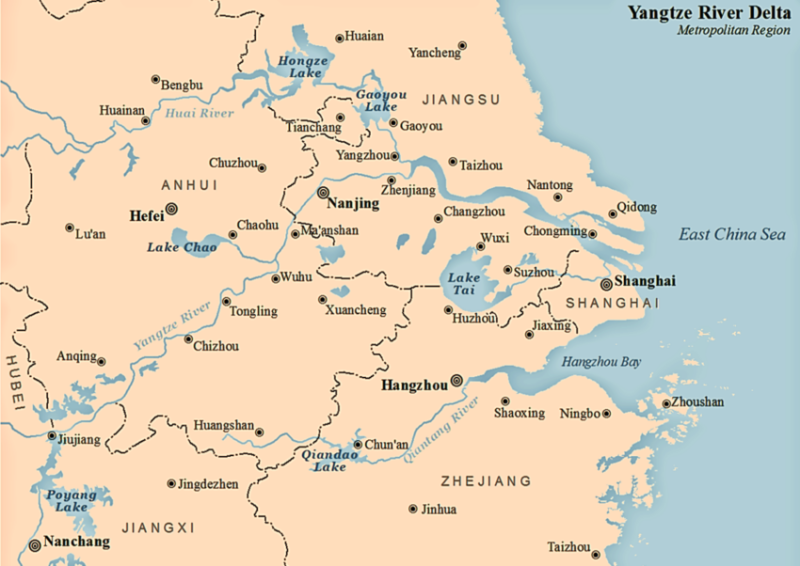
The plan is the brainchild of members of the Chinese Communist Party (CCP). And, in typical bureaucratic style, it has a long-winded name: “Shanghai City Promoting Urban Blockchain Digital Infrastructure System Project Implementation Plan (2023-2025).”
China Hopes to Further Integrate the Yangtze Delta Region
According to the plan, released on Shanghai’s government website, the “Pujiang Digital Chain” will be fully operational by 2025, supporting and integrating the city’s government affairs, public services, and industry. Pujiang is a town within Shanghai’s municipal borders.
By the time of implementation, the chain will include capabilities for data identification, digital payment, and supervision. The aim is to ensure the security of the city’s data infrastructure and facilitate large-scale blockchain applications.
This will include improving the traceability of the region’s trade and agricultural produce and putting government data on-chain.
Another aim for the Pujiang Digital Chain is the “integration of the Yangtze River Delta (YRD).” The region—with Shanghai at its center—also includes 26 other cities. The economic powerhouse accounted for 20% of China’s GDP in 2018 and represented 39% of the country’s total foreign direct investment inflows.
According to Ernst and Young, the YRD accounts for one-third of China’s annual national research funding and is home to around a quarter of China’s top universities.

An image of the Yangtze River Delta region. Source: Seasonsinthesun
Embracing Blockchain, but Not Crypto
Also included in the plan is a batch of five new research and development (R&D) institutions. These Shanghai-based innovation centers will focus on “science and technology [and] gather high-end talents.”
The plan is a decisive step forward on the part of a city proud of its status as a tech hub. Hardline elements in the CCP are notoriously unfriendly to some forms of innovation. And to human rights and economic freedoms more broadly.
But it’s important to remember that cryptocurrency and blockchain are not synonymous.
While all crypto transactions have been illegal on the Chinese mainland since 2021, using blockchains for other purposes is not. In fact, the Chinese government has been very open to blockchain’s use cases.
On the other hand, the semi-autonomous city region of Hong Kong has taken a different approach. In recent months, Hong Kong government officials have been wooing the digital assets industry in an attempt to become a global fintech hub.
In May, the communist regime in Beijing announced the launch of a national blockchain research hub. The country hopes to train 500,000 new professionals at the center, with a focus on the non-cryptocurrency use cases of blockchain technology.

